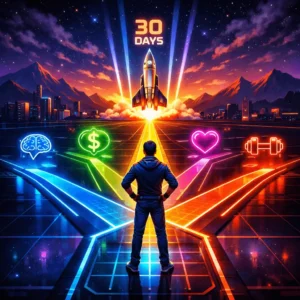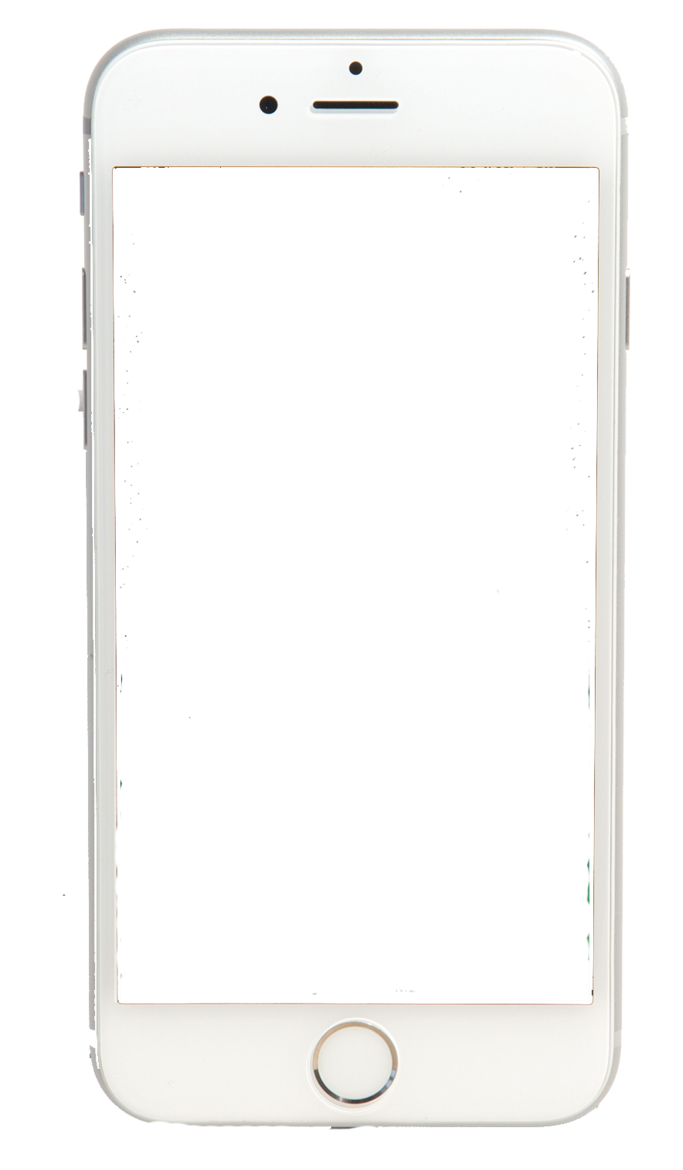Do you find yourself lying awake at night wondering, “What am I doing with my life?” You’re not alone. This fundamental question haunts millions of people across all ages and backgrounds, from recent college graduates staring at endless career possibilities to mid-career professionals feeling trapped in unfulfilling routines. The search for meaning and direction isn’t just philosophical curiosity. It’s a deep human need that, when fulfilled, transforms how we approach every aspect of our existence.
The journey to discovering your life purpose doesn’t require dramatic revelations or life-altering moments. Instead, it begins with honest self-reflection and the right questions. But here’s what most people don’t realize: the traditional approach of simply asking yourself these questions and hoping for clarity often falls short. In our information-saturated world, we need more sophisticated tools to cut through the noise and uncover genuine insights about our calling.
When you combine thoughtful self-reflection with modern technology and proven behavioral science principles, patterns emerge that point toward your unique contribution to the world. The 15 questions to discover your life purpose in this guide aren’t just random inquiries—they’re carefully crafted to reveal different aspects of your authentic self, from your natural gifts to your deepest values.
This systematic approach to purpose discovery goes beyond surface-level career advice. It’s about creating a framework for doing with life what truly matters to you, building a foundation that guides your decisions, relationships, and daily habits toward meaningful fulfillment. Whether you’re just starting your journey or ready to pivot toward something more aligned with who you’ve become, these questions will illuminate the path forward.
Why Knowing Your Purpose Defines Your Path Forward
Understanding your life purpose isn’t just about feeling good or finding meaning—it’s about creating a framework for decision-making that aligns with your deepest values and aspirations. Research from Stanford University’s Center on Longevity shows that people with a clear sense of purpose live longer, experience better mental health, and demonstrate greater resilience during challenging times.
Knowing your purpose defines your priorities, relationships, career choices, and daily habits. It becomes the North Star that guides you through uncertainty and helps you navigate life’s inevitable challenges with greater resilience and clarity. Without this guiding principle, it’s easy to drift through life reactive to circumstances rather than proactive in creating the life you truly want.
When your daily actions align with your deeper calling, even mundane tasks take on greater significance because they contribute to something larger than yourself. This alignment creates what psychologists call “eudaimonic well-being”—a deep sense of fulfillment that comes from living according to your authentic self rather than chasing external validation or temporary pleasures.
Related Article: How to Find Yourself When you Are Lost
The Foundation: Understanding What Life Purpose Really Means
Before diving into the questions, it’s important to understand that your life purpose isn’t necessarily a single career or role. Your purpose might be expressed through multiple channels—your work, relationships, creative pursuits, or service to others. It’s the underlying theme that connects your passions, strengths, values, and the positive impact you want to make in the world.
Your purpose also evolves. What drives you in your twenties might shift in your forties, and that’s perfectly normal. The key is staying connected to the core essence of who you are while allowing room for growth and change. This evolution doesn’t mean you were wrong before—it means you’re continuing to grow and discover new aspects of your authentic self.
Think of your purpose as the intersection of what you’re naturally good at, what you’re passionate about, what the world needs, and what you can be rewarded for. This framework, adapted from the Japanese concept of ikigai, helps ensure your purpose is both meaningful and sustainable.
Read More: Feeling Lost in Life
Why Traditional Self-Help Falls Short
Most generic self-help approaches to finding purpose rely on one-size-fits-all solutions that ignore your unique personality, circumstances, and goals. They offer the same questions to everyone, expecting universal insights from deeply personal inquiries. This approach often leaves people more confused than before, wondering why the “proven methods” don’t seem to work for them.
The problem isn’t with self-reflection itself—it’s with the lack of personalization and systematic analysis. When you answer profound questions about your life purpose, you need a way to identify patterns, synthesize insights, and translate discoveries into actionable direction. Without this framework, even the most thoughtful responses can feel disconnected and overwhelming.
Modern behavioral science shows us that sustainable change requires understanding your unique psychological makeup, environmental factors, and personal motivators. Generic advice about finding purpose ignores these crucial elements, which is why so many people struggle to bridge the gap between knowing what they want and actually creating it.
15 Questions to Discover Your Life Purpose
Let’s explore 15 Questions to Discover Your Life Purpose. These questions will help you in finding direction, meaning, clarity, balance in life journey.
1. What activities make you lose track of time?
Think about moments when you’ve been so absorbed in an activity that hours passed without notice. These flow states often point toward activities that align with your natural strengths and passions. Whether it’s solving complex problems, creating art, helping others, or building something new, pay attention to what captures your complete attention.
2. What would you do if money weren’t a factor?
This classic question helps strip away practical limitations to reveal what truly motivates you. If you had unlimited financial resources, how would you spend your time? What problems would you solve? What would you create or contribute? Your answers reveal values and interests that might be getting overshadowed by financial concerns.
Related Article: Three Phases of the Impulse Purchase Cycle
3. What breaks your heart about the world?
Your purpose often lies at the intersection of what troubles you and what you feel called to address. Whether it’s environmental destruction, social inequality, lack of education, or something else entirely, the issues that genuinely upset you often point toward areas where you’re meant to contribute solutions.
4. What did you love doing as a child?
Before social expectations and practical concerns took over, what naturally drew your interest? Children gravitate toward activities that align with their innate gifts and interests. Reconnecting with these early passions can provide clues about your authentic self and natural purpose.
Related Article: The 7 Habits of Happy Kids
5. What do people consistently ask for your help with?
Others often recognize our gifts before we do. What do friends, family, and colleagues regularly turn to you for? Whether it’s advice, creative input, problem-solving, or emotional support, these patterns reveal your natural strengths and the unique value you bring to others’ lives.
6. What legacy do you want to leave behind?
Imagine you’re at the end of your life looking back. What impact do you want to have made? How do you want to be remembered? What would you want people to say about how you lived and what you contributed? This long-term perspective can clarify what truly matters to you.
7. What are you naturally good at?
Your innate talents and abilities are often clues to your purpose. These might be obvious skills like artistic ability or analytical thinking, or subtler gifts like making people feel comfortable or seeing connections others miss. Your natural abilities are tools meant to serve your larger purpose.
8. What challenges have you overcome that could help others?
Your struggles and how you’ve overcome them often become sources of purpose. The difficult experiences you’ve navigated successfully can become ways to guide and support others facing similar challenges. Your pain can become your purpose when channeled toward helping others heal and grow.
9. If you knew you couldn’t fail, what would you attempt?
Fear of failure often keeps us from pursuing our true calling. By removing this barrier mentally, you can explore what you’d really want to attempt if success were guaranteed. These bold dreams often contain kernels of your authentic purpose, even if the specific execution might need to be more practical.
Read More: I Feel Like a Failure
10. What topics do you find yourself reading about in your free time?
Your natural curiosity often points toward areas where you’re meant to contribute. What subjects do you explore without being asked or required to? What kind of articles, books, or videos do you gravitate toward? These interests often reveal deeper callings and areas where you could make meaningful contributions.
11. What would make you feel proud of your life at age 50?
Taking a long-term view helps clarify what truly matters versus what feels urgent in the moment. When you imagine yourself decades from now, what accomplishments, relationships, or contributions would make you feel genuinely proud of how you lived? This perspective can help distinguish between temporary desires and lasting purpose.
Related Article: How to Start Over in Life at 50
12. How do you naturally want to serve others?
Purpose often involves service, but service comes in many forms. Some people serve through teaching, others through creating beauty, solving problems, building communities, or providing support. How do you naturally want to contribute to others’ well-being and growth? Your preferred method of service often aligns with your deeper purpose.
13. What patterns do you notice in your life choices?
Look back at your major decisions, relationships, and pursuits. What themes emerge? Even seemingly unrelated choices often have underlying connections that point toward consistent values and purposes. These patterns can reveal the thread that connects your various life experiences.
14. What would you regret not trying?
Sometimes purpose becomes clear when we consider what we’d regret leaving undone. What dreams, goals, or contributions would you regret not attempting? What risks would you regret not taking? These regrets often point toward your authentic callings that fear or circumstances have kept you from pursuing.
15. How do you want to grow and evolve as a person?
Your purpose isn’t just about external achievements—it’s also about who you’re becoming. What qualities do you want to develop? What kind of person do you want to evolve into? Your growth goals often align with your purpose and give direction to your personal development journey.
Accelerate Your Discovery with AI
While these 15 questions to discover your life purpose provide a powerful foundation for self-reflection, analyzing your responses and identifying meaningful patterns can be challenging. This is where artificial intelligence can serve as your personal insight analyzer, helping you uncover connections and themes you might miss on your own.
AI can process your responses to all 15 questions simultaneously, identifying recurring themes, contradictions that need resolution, and patterns that point toward your unique calling. Rather than struggling to synthesize insights manually, you can leverage AI’s analytical capabilities to accelerate your purpose discovery journey.
AI PROMPT TO COPY/PASTE:
“I’ve just completed a comprehensive self-reflection exercise using 15 questions to discover my life purpose. Please act as a life purpose analyst using behavioral psychology principles to help me identify patterns and synthesize my responses into actionable insights.
Please guide me through this analysis step by step, waiting for my responses before moving to each stage:
First Step: Pattern Recognition Ask me to share my responses to the 15 questions, then identify the top 3 recurring themes across my answers.
Second Step: Strength-Purpose Alignment
Based on my responses, help me identify where my natural abilities intersect with my passions and values.
Third Step: Purpose Statement Development Guide me in crafting a clear, actionable purpose statement that synthesizes my insights and provides direction for decision-making.
Please start with Step 1 and ask for my responses to the 15 questions.”
Example Implementation:
AI: “Please share your responses to the 15 purpose discovery questions, and I’ll help identify patterns and themes that point toward your unique calling.”
User: [Shares detailed responses covering their interests in education, technology, and helping others overcome learning challenges]
AI: “I notice three strong themes in your responses: 1) Educational innovation and accessibility, 2) Technology as a tool for empowerment, and 3) Supporting others through personal challenges. These intersect powerfully around using technology to create educational solutions for people facing learning obstacles…”
While this AI-enhanced approach provides valuable insights, it represents just the beginning of true purpose discovery. The real challenge isn’t just identifying your calling—it’s systematically building the daily habits and mindset shifts necessary to align your entire life with your purpose across all key areas: your mindset, career and finances, relationships, physical health, and emotional well-being.
How to Know What to Do with Your Life: Processing Your Answers
After working through these questions—whether through traditional self-reflection or AI-enhanced analysis—look for patterns and themes in your responses. Don’t expect a single, clear answer to emerge immediately. Instead, notice recurring elements: certain types of activities, values, ways of helping others, or areas of interest that appear across multiple answers.
Write down the common threads you discover. These might include working with specific types of people, solving particular kinds of problems, creating certain forms of value, or expressing specific talents. These patterns often point toward your unique purpose and how it might be expressed in the world.
Pay special attention to the intersection points—where your natural gifts meet your deepest values, where your passions align with genuine needs in the world, and where your unique experiences position you to make a meaningful contribution. Your purpose often lives at these intersection points rather than in any single answer.
Consider creating a visual map or diagram of these connections. Sometimes seeing the relationships between different aspects of yourself can reveal insights that purely analytical thinking might miss. Look for the golden thread that weaves through your responses—the underlying motivation or value that appears consistently, even when expressed through different activities or interests.
When You Think “I Don’t Know What I Want to Do in Life”
If you’re feeling stuck and thinking “I don’t know what I want to do in life,” remember that this uncertainty is often a sign that you’re ready for growth and change. It’s your inner wisdom recognizing that your current path may not be fully aligned with who you’re becoming.
This feeling of being lost isn’t a character flaw or personal failure—it’s often the first step toward authentic self-discovery. Many people who eventually find deep fulfillment in their purpose went through periods of confusion and questioning. The discomfort you’re feeling is your authentic self pushing against limitations that no longer serve you.
Start small rather than trying to figure out your entire life direction at once. You don’t need to overhaul your entire existence immediately. Begin by incorporating more activities that align with your emerging sense of purpose. Volunteer in areas that interest you, take on projects that use your natural gifts, or spend time with people who share your values and interests.
Consider this uncertainty as valuable information rather than a problem to solve. What specifically feels unfulfilling about your current situation? What aspects of your life feel most misaligned? These insights can guide you toward what you do want, even when the complete picture isn’t yet clear.
Remember that what I want to do in life often emerges through experimentation and experience rather than pure contemplation. Give yourself permission to explore, try new things, and change direction as you learn more about yourself. Your purpose may reveal itself gradually through action rather than appearing fully formed in a moment of insight.
Read More: What Should I do With My Life
Taking Action on Your Discoveries: From Purpose to Practice
Understanding your purpose is just the beginning. The real transformation happens when you align your daily life with your deeper calling. This might mean changing careers, but it could also mean approaching your current role differently, pursuing new relationships, or dedicating time to meaningful projects. Purpose isn’t just about finding the right job. It’s about creating alignment across all areas of life, influencing your career, relationships, personal growth goals, physical and emotional health.
Start by identifying one small step you can take this week to move toward greater alignment with your purpose. This might be having a conversation with someone in a field that interests you, signing up for a class, starting a creative project, or volunteering for a cause you care about. Create specific “implementation intentions”. If-then plans that connect your purpose insights to concrete actions. Like “If I feel energized by helping others learn, then I will volunteer to tutor this Saturday.” The goal isn’t dramatic immediate change, but building momentum through consistent action.
Consider expressing your purpose through multiple channels rather than seeking one perfect opportunity. You might serve your calling through your primary career, volunteer work, creative projects, and the way you show up in relationships. This diversified approach makes your purpose more resilient and less dependent on any single avenue. Most importantly, build systems and habits that keep you connected to your purpose over time through regular reflection, values-aligned goal-setting, and surrounding yourself with people who support your authentic growth.
Conclusion: 15 questions to discover your life purpose
Remember that discovering and living your purpose is an ongoing journey, not a destination. As you grow and change, your understanding of your purpose will deepen and evolve. The 15 questions to discover your life purpose provide a foundation, but your purpose will continue revealing itself through lived experience and continued self-reflection.
The key is staying connected to the questions that reveal your authentic self and having the courage to act on what you discover. Your life purpose is uniquely yours—no one else can live it for you. By honestly exploring these questions and taking consistent action on your insights, you begin the rewarding journey of creating a life that truly reflects who you are and what you’re here to contribute to the world.
But here’s what most people discover: finding your purpose is only half the battle. The real challenge lies in systematically building the daily habits, mindset shifts, and life systems necessary to honor your calling across all dimensions of your existence. Purpose without a practical framework for implementation often remains an inspiring idea rather than a lived reality.
If you’re ready to move beyond purpose discovery into purpose-driven living, consider exploring AI Habits Coach system that helps you align your daily habits with your deeper calling. The most fulfilled people don’t just know their purpose—they’ve built gamified, science-backed systems that make living their purpose feel as natural and rewarding as their favorite activities. Ready to discover not just what your purpose is, but how to make it the foundation of everything you do?






